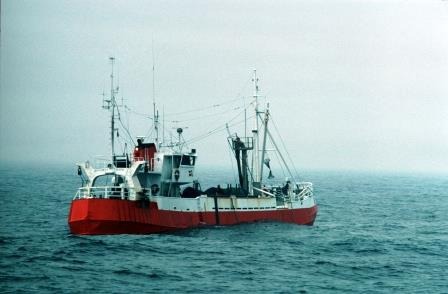The European Commission proposed yesterday new rules to modernise and simplify the way in which fishing rules are monitored and complied with in the EU. The new rules aim at making the existing control system more efficient and thereby ensuring that the EU's fisheries are sustainably managed. The Commission's proposal includes among others improving the fisheries data system on catches. The system will become fully electronic, irrespective of the vessels' size. An electronic tracking system will also be put into place for all vessels. Reporting on lost fishing gear, a source of marine litter, will also be improved.
Paper-based reporting for small vessels will be phased out and current derogations removed. The Commission estimates that the derogation not to report catches below 50 kg could leave unaccounted for up to 350,000 tonnes of fish, corresponding to 6% of currently reported catches by EU fishing vessels.
The proposal is also expected to support the implementation of the landing obligation, which comes fully into force as of next year and requires that fishermen land all catches to stop the wasteful practice of throwing unwanted fish back to the sea.
To better control the landing obligation, the Commission is proposing that certain vessels are equipped with continuous recording electronic monitoring devices including Close Circuit Televisions (CCTV). The selection of vessels to be equipped will be done based on their level of discard risk.
The Commission also wants to improve the control of recreational fisheries by EU member states. Via a simple registration or licensing system, member states will know how many persons are fishing for recreational purposes and will be able to the collect reliable data on catches and practices.
There are an estimated 8 to 10 million recreational fishermen in the EU, but catches from them are still largely unaccounted for because of lack of proper control measures. This has a direct and increasing impact on fish stocks, including on commercial ones subject to catch limits.
The European Policy Office of WWF (World Wide Fund for Nature) complained on Wednesday (30 May) that the standard 12-week public consultation on the proposal had been replaced by a one-day meeting with selected stakeholders. According to WWF this resulted in a lack of evidence to support the proposal and a failure to build consensus.
In particular WWF is concerned that the main positive elements of the proposal risk being degraded or dropped in the final legislation.
“Currently, the Commission's proposal doesn't ensure that all necessary information to prove the legal origin of imported seafood products is available to EU import authorities,” added Samantha Burgess, head of marine policy at WWF.
The proposal will now go to the European Parliament and Council for discussion and adoption.
The Brussels Times

